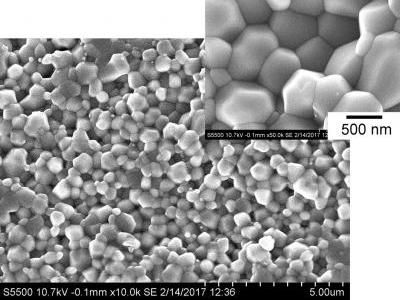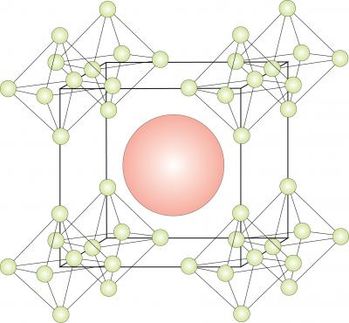A new type of optical ceramic material
The new type of optical ceramics was designed by scientists' team of the Far Eastern Federal University (FEFU) under Denis Yu. Kosyanov, Ph.D., senior researcher of the School of Natural Sciences (FEFU). The scientific and technical results of the work were published. A patent application was filed.

This is a monophase polycrystal with an average grain size of 500 nm obtained by FEFU scientists, Russia. Because of the innovative method of reaction spark plasma sintering (RSPS) the synthesis carried out 10-20 times faster comparing to the known approaches.
FEFU laboratory Materials
Ceramics created is one of the numbers of other results of the work to design transparent polycrystalline materials with specified properties. The results of previous research have already been published.
'The new so-called 'fine-grained' ceramics YAG: Nd contains up to 4 at.% active additive of neodymium ions. So far, that is unattainable with modern technologies of laser crystals production. The applying of the innovative method of reaction spark plasma sintering (RSPS) made it possible to carry out the synthesis 10-20 times faster comparing to the known approaches, and to obtain a monophase polycrystal with an average grain size of 500 nm', senior researcher Denis Kasyanov comments on. 'An important result of the invention is the simplification and cost reduction of the technology of obtaining optical materials with a YAG structure. In particular, the easiness of controlling the variety and the amount of active additive within the RSPS method makes it possible to vary the functionality of the final material', he proceeds.
The researching direction of the team led by Denis Kosyanov is considering as promising. There are a number of problems established in front of scientists to further research. To gain success in solving them FEFU designed the curriculum for magistracy, postgraduate, and postdoctoral studies.
The 'New ceramic materials' is one of the main researching areas in the key laboratory 'Materials' established by FEFU. To ensure a breakthrough, we are already attracting Russian and foreign scientists from leading Universities and research organizations', Kirill Golokhvast tells, Ph.D., FEFU provost for science work. He also noticed that the team of the key laboratory will be formed of talented young physicists, biologists, and, of course, materials scientists.
Original publication
Other news from the department science
Most read news
More news from our other portals
See the theme worlds for related content
Topic world Synthesis
Chemical synthesis is at the heart of modern chemistry and enables the targeted production of molecules with specific properties. By combining starting materials in defined reaction conditions, chemists can create a wide range of compounds, from simple molecules to complex active ingredients.

Topic world Synthesis
Chemical synthesis is at the heart of modern chemistry and enables the targeted production of molecules with specific properties. By combining starting materials in defined reaction conditions, chemists can create a wide range of compounds, from simple molecules to complex active ingredients.




























































